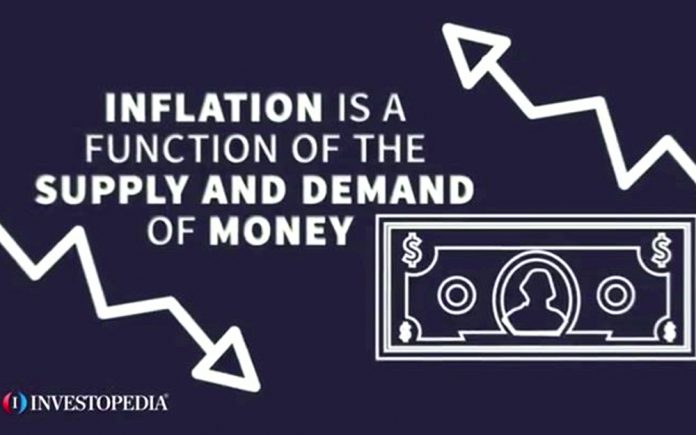
By Haddon Libby
Housing prices are going crazy. So is the price of a gallon of gas or a bag of groceries. Despite these apparent signs of inflation, the Federal Reserve Bank says that these price increases are ‘transitory’ in nature and will go away. The last time I was told something would go away almost magically was when COVID first began causing havoc on the United States. A year later and we are still dealing with a virus that we can only hope does not try and transitory itself into a new variant that further disrupts society.
These are the types of excesses that happen in a heavily manipulated economy as is the case today.
The best way to combat higher prices is to fix your expenses now. As an example, if you own a home, make sure you have a fixed rate loan that lasts for as long as you expect to live in the home. For many, the home is the greatest store of value and you want to preserve that value by locking in on today’s low rates.
As it relates to that home, consider buying a solar power system for your house. If the price of oil goes up, so will energy prices. Not only do you get a tax break for having solar but you have removed the risk of higher energy prices from your summer air conditioning bill.
I look at a lot of 401k accounts. One thing that I notice is that people have too much in fixed income/ bonds. When the market crashed last year, many stocks fell by 40% while some of the most impacted sectors of the economy priced for bankruptcy. At that time, many investors became more conservative only to be too fearful to reinvest later as stock seemed too risky.
There is no question that parts of the market are too risky. Some stocks are priced like the dot.com bubble of twenty years ago while companies that should have go bankrupt, soar to record prices due to an odd speculative mix of Reddit investors and Wall Street professionals. While these headline story stocks grab our attention, many stocks remain undervalued. When investing, try and maintain a well-diversified portfolio constructed of strong cash flow companies with reasonable debt levels as these types of investments will typically outperform over the long run.
 Bond aka fixed income looks to be a low to negative return investment as interest rates and inflation increase. If you want to avoid this value trap, consider holding a higher than normal level of equities. Should you do this, avoid the ‘chase for yield’ that many investors lean toward as a replacement for bonds. A chase for yield means that someone likes to buy stocks with the highest dividend yield. A key mistake to this approach is that many people will end up with too much invested in one sector over another and often choose companies that are far from best in class in their respective industries.. Real Estate Investment Trusts and Oil & Gas are two sectors known for heavy dividends that often exceed the ability of the stock to perform over the long-run. As a result, the investor gets a big dividend at the expense the value of their investment.
Bond aka fixed income looks to be a low to negative return investment as interest rates and inflation increase. If you want to avoid this value trap, consider holding a higher than normal level of equities. Should you do this, avoid the ‘chase for yield’ that many investors lean toward as a replacement for bonds. A chase for yield means that someone likes to buy stocks with the highest dividend yield. A key mistake to this approach is that many people will end up with too much invested in one sector over another and often choose companies that are far from best in class in their respective industries.. Real Estate Investment Trusts and Oil & Gas are two sectors known for heavy dividends that often exceed the ability of the stock to perform over the long-run. As a result, the investor gets a big dividend at the expense the value of their investment.
While you want to fix your expenses as fully as possible, avoid doing the same with your investments. If inflation is running at a 3% annual rate, your investments need to earn more than 3%. If you earn less than the rate of inflation, you are losing buying power.
If all of this is too much for you to make heads or tails out of, find an investment advisor, like me, that can help explain the complicated and often confusing world of investment management.
Haddon Libby is the Founder and Chief Investment Officer of Winslow Drake Investment Management. For more information, please visit www.WinslowDrake.com.












































